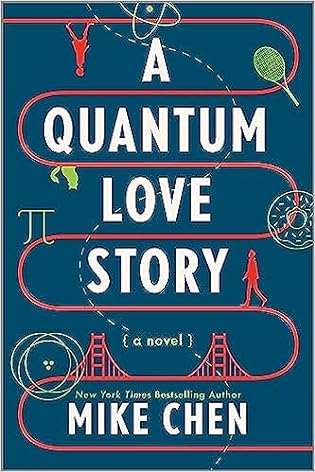 A Quantum Love Story by Mike Chen
A Quantum Love Story by Mike Chen Format: eARC
Source: supplied by publisher via NetGalley
Formats available: hardcover, paperback, ebook, audiobook
Genres: relationship fiction, science fiction, science fiction romance, time travel
Pages: 368
Published by Harlequin MIRA on January 30, 2024
Purchasing Info: Author's Website, Publisher's Website, Amazon, Barnes & Noble, Kobo, Bookshop.org, Better World Books
Goodreads
The only thing harder than finding someone in a time loop is losing them.
Grieving her best friend's recent death, neuroscientist Mariana Pineda’s ready to give up everything to start anew. Even her career— after one last week consulting at a top secret particle accelerator.
Except the strangest thing a man stops her…and claims they've met before. Carter Cho knows who she is, why she's mourning, why she's there. And he needs Mariana to remember everything he’s saying.
Because time is about to loop.
In a flash of energy, it’s Monday morning. Again. Together, Mariana and Carter enter an inevitable life, four days at a time, over and over, without permanence except for what they share. With everything resetting—even bank accounts—joy comes in the little a delicious (and expensive) meal, a tennis match, giving a dog his favorite treat.
In some ways, those are all that matter.
But just as they figure out this new life, everything changes. Because Carter's memories of the time loop are slowly disappearing. And their only chance at happiness is breaking out of the loop—forever.
My Review:
Carter Cho recognizes that he’s in a time loop. He has four days to live, over and over and over and OVER again, with no way to stop it and no way out. All he can do is watch, wait and repeat. It’s boring, it’s disheartening, it’s downright depressing. Most of all it’s terribly, terribly lonely.
Until Carter decides to take one loop and do the opposite of everything he did the first and all the subsequent, mind-numbing, heart-breaking times he’s looped before. And in that opposition he manages to convince, coerce, drag another person into the loop with him.
Dr. Mariana Pineda and technician Carter Cho are opposites in every possible way, but all they have is each other. And a seemingly endless amount of time to figure out what keeps making the Hawke Accelerator accelerate itself into a catastrophic explosion, time after time after time – and resetting the world as everyone but the two of them knows it.
Neither of them has the training or the tools to diagnose what’s going wrong – but they are all they have. And that turns out to be more than enough. Just in the nick of, well, time.
 Escape Rating B+: If the blurb or the description above are making you think of the movie Groundhog Day, you are not alone. Neither was it alone in my head as I was reading my way through the first part of the story – because time travel loops have been done before.
Escape Rating B+: If the blurb or the description above are making you think of the movie Groundhog Day, you are not alone. Neither was it alone in my head as I was reading my way through the first part of the story – because time travel loops have been done before.
In other words, this loop has been looped before. As they do.
At one end of that time loop story perspective there’s Groundhog Day, which has kind of a sweet ending no matter how much of an asshole the protagonist (played by Bill Murray) is as the story begins. But Carter Cho is a really nice guy – if a bit of an underachiever according to his parents – so that resemblance isn’t 100%
The ending of A Quantum Love Story, or rather, all the endings of the world before the resets, have all of the explosive punch of the movie Edge of Tomorrow, although there’s no war in Quantum.
A Quantum Love Story felt more akin to the Stargate SG-1 episode “Window of Opportunity” as following the protagonists through the loops of that journey goes through many of the same stages that Carter and Mariana go through while following characters that one really does want to follow. Also there’s no real villain in “Window of Opportunity”, which is also true in Quantum. The story, the journey, the battle if you will, is to solve the mystery and break the cycle – not to break heads.
 But the chasing down of just how many different time loop stories this one brought to mind kept me from being as invested in Carter and Mariana’s problem solving through their loops, although the emotional journey they took did hold my interest even as it briefly looked like it was heading for Flowers for Algernon territory which made for some tense moments for this reader. (Don’t worry too much, it doesn’t go there, but there were a few bits that just about gave me the weepies when it looked that way. Howsomever, the author has form for this, as that’s part of the direction that his lovely Light Years from Home went.)
But the chasing down of just how many different time loop stories this one brought to mind kept me from being as invested in Carter and Mariana’s problem solving through their loops, although the emotional journey they took did hold my interest even as it briefly looked like it was heading for Flowers for Algernon territory which made for some tense moments for this reader. (Don’t worry too much, it doesn’t go there, but there were a few bits that just about gave me the weepies when it looked that way. Howsomever, the author has form for this, as that’s part of the direction that his lovely Light Years from Home went.)
The heart of the story, and it very much does have one, is in the relationship between Carter and Mariana, who begin as opposites in just about every sense of the word and bond through shared trauma. But what they discover through that sharing is that their version of opposites attract brings out the best in both of them, and that there are possibilities in life that neither of them ever imagined.
Including the possibility of a happy ever after with someone that they would otherwise never have had a chance to meet. A chance that will be whisked away if they ever manage to solve the problem and stop the resets.
The solution to both problems, to the endless resets of the time loop and to stopping those resets, turns out to be exactly the same thing. With one surprising and beautiful deus ex machina of an exception.
Ultimately, the repeating time loops with their repeating reminders of other time loop stories is both a bit of a bug AND a feature. After all this is a story about things repeating until they don’t, so it seems right that they kind of do. In the end I was charmed by the story and the characters as they worked through both repeating and not repeating time at the same time.
I’ll certainly be repeating my exploration of this author’s work and his signature combination of science fiction and relationship fiction with his next outing, hopefully this time next year. In the meantime, if you are intrigued by this review, check out the first chapter excerpt I posted last week. If you like SF with just a touch of romance and a heaping helping of relationship building and problem solving, you just might fall in love with A Quantum Love Story!

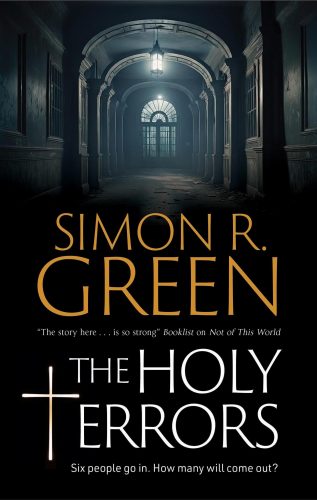 The Holy Terrors (A Holy Terrors mystery) by
The Holy Terrors (A Holy Terrors mystery) by 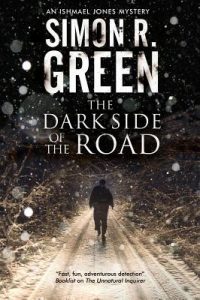 Escape Rating B-: I ended up with a LOT of mixed feelings about this one, some of which may have to do with having no love or even liking for so-called reality TV. (Although, honestly, if the author has any love for that genre it’s a particularly twisted version of it.)
Escape Rating B-: I ended up with a LOT of mixed feelings about this one, some of which may have to do with having no love or even liking for so-called reality TV. (Although, honestly, if the author has any love for that genre it’s a particularly twisted version of it.)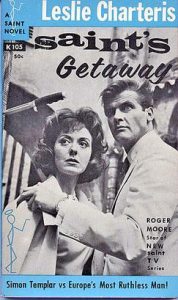 It niggled at me through the whole book as something familiar, but I was caught up just enough in the mystery at hand and the bell didn’t ring until AFTER I finished the book. Because that phrase, in popular parlance in British in the 1930s,
It niggled at me through the whole book as something familiar, but I was caught up just enough in the mystery at hand and the bell didn’t ring until AFTER I finished the book. Because that phrase, in popular parlance in British in the 1930s,  A Body at the Séance (London Ladies' Murder Club, #2) by
A Body at the Séance (London Ladies' Murder Club, #2) by  Escape Rating A-: I couldn’t resist diving almost straight into A Body at the Séance so soon after the first book in the London Ladies’ Murder Club series, the charmingly murderous
Escape Rating A-: I couldn’t resist diving almost straight into A Body at the Séance so soon after the first book in the London Ladies’ Murder Club series, the charmingly murderous  She’s not willing to settle. And she doesn’t have to. Which makes her the kind of role model the world could still use more of.
She’s not willing to settle. And she doesn’t have to. Which makes her the kind of role model the world could still use more of.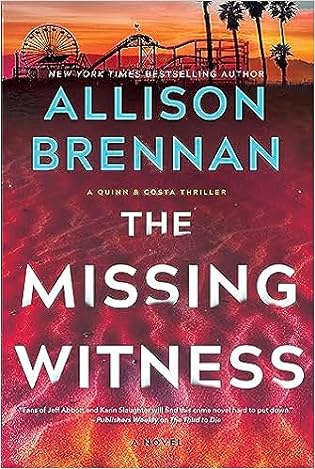 The Missing Witness (Quinn & Costa, #5) by
The Missing Witness (Quinn & Costa, #5) by 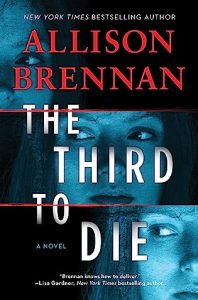
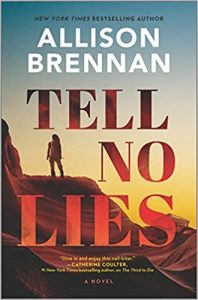

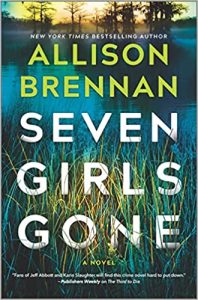

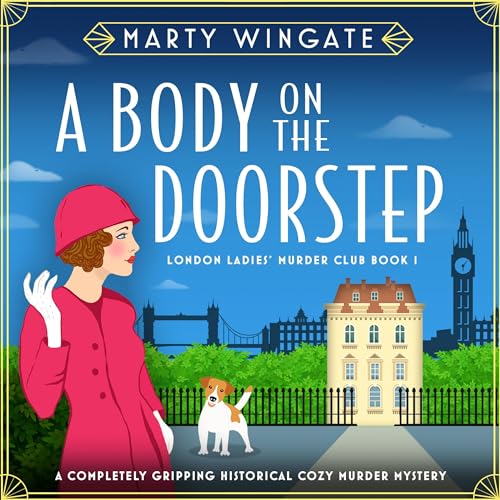 A Body on the Doorstep (London Ladies' Murder Club, #1) by
A Body on the Doorstep (London Ladies' Murder Club, #1) by  I listened to this one for about half its length, and the narrator gave Mabel just the right voice for her inner thoughts and outer expressions. But I got so caught up in the mystery itself that I had to see whodunnit and switched to text because it’s a)faster and b) a whole lot easier to thumb to the end. Although I resisted that temptation by simply finishing in one sitting.
I listened to this one for about half its length, and the narrator gave Mabel just the right voice for her inner thoughts and outer expressions. But I got so caught up in the mystery itself that I had to see whodunnit and switched to text because it’s a)faster and b) a whole lot easier to thumb to the end. Although I resisted that temptation by simply finishing in one sitting.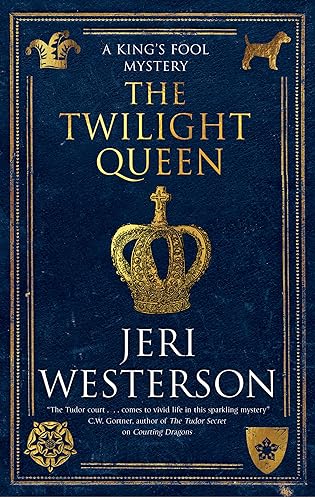 The Twilight Queen (A King's Fool mystery, 2) by
The Twilight Queen (A King's Fool mystery, 2) by  That his story – or rather the reinterpretation of his story through the characters of his six wives – has been reimagined yet again in the Tony Award winning Broadway play,
That his story – or rather the reinterpretation of his story through the characters of his six wives – has been reimagined yet again in the Tony Award winning Broadway play, 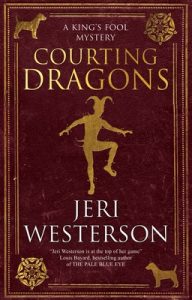 Escape Rating B: Genre blends such as historical mystery are always a balancing act – much like Will Somers position is a balancing act between making his sovereign laugh, forcing his master to stop and think – and keeping both his job and his head.
Escape Rating B: Genre blends such as historical mystery are always a balancing act – much like Will Somers position is a balancing act between making his sovereign laugh, forcing his master to stop and think – and keeping both his job and his head.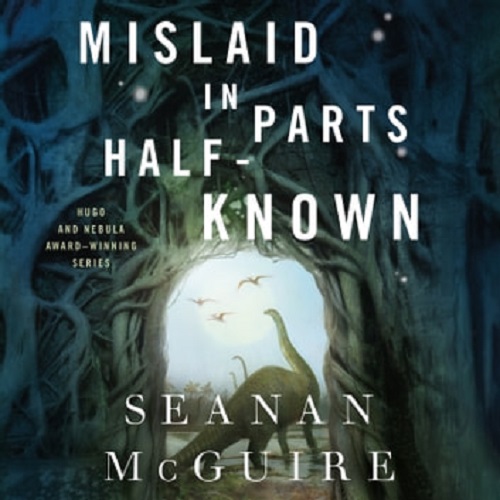 Mislaid in Parts Half-Known (Wayward Children, #9) by
Mislaid in Parts Half-Known (Wayward Children, #9) by  Beginning with
Beginning with 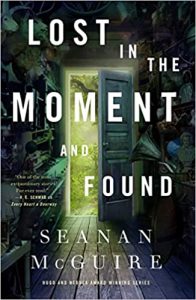 At first, the story feels very much a part of the YA genre which the series is often pigeonholed into, as out-of-place, out-of-time Antsy is being persecuted by a powerful clique of ‘mean girls’. It’s only when she starts revealing herself for who she really is and what she really can do that we start to see her as considerably more capable and mature than either her nine-year-old head or her sixteen-year-old body would be capable of.
At first, the story feels very much a part of the YA genre which the series is often pigeonholed into, as out-of-place, out-of-time Antsy is being persecuted by a powerful clique of ‘mean girls’. It’s only when she starts revealing herself for who she really is and what she really can do that we start to see her as considerably more capable and mature than either her nine-year-old head or her sixteen-year-old body would be capable of. The Butterfly Collector by
The Butterfly Collector by  Escape Rating B: I have to say that I ended up with mixed feelings all over the place while listening to and reading The Butterfly Collector. In the end, the 1922 story carried me through, but it’s the 1868 story that held the most bone-chilling horrors. Real-life horror, like revenge, is compellingly served ice cold – and the horrors of this story, based on real historical events – had plenty of chills to deliver.
Escape Rating B: I have to say that I ended up with mixed feelings all over the place while listening to and reading The Butterfly Collector. In the end, the 1922 story carried me through, but it’s the 1868 story that held the most bone-chilling horrors. Real-life horror, like revenge, is compellingly served ice cold – and the horrors of this story, based on real historical events – had plenty of chills to deliver.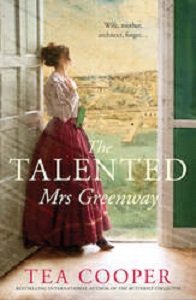 Once I switched to text it all got better, and I was able to finally be captured by the increasingly frenetic pace of the mystery of it all. Not just a terrible crime, but decades of a profitable series of terrible crimes come to light and sticks a knife into Verity’s heart AND her perceptions of her family’s history in a way that makes the whole story both sing and sting at the same time.
Once I switched to text it all got better, and I was able to finally be captured by the increasingly frenetic pace of the mystery of it all. Not just a terrible crime, but decades of a profitable series of terrible crimes come to light and sticks a knife into Verity’s heart AND her perceptions of her family’s history in a way that makes the whole story both sing and sting at the same time.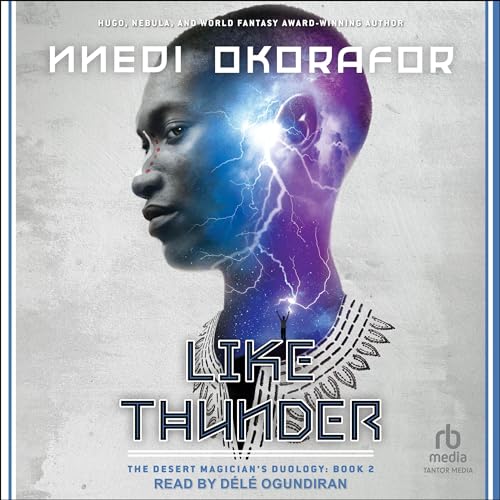 Like Thunder (The Desert Magician's Duology #2) by
Like Thunder (The Desert Magician's Duology #2) by  Escape Rating A-: As much as I loved
Escape Rating A-: As much as I loved 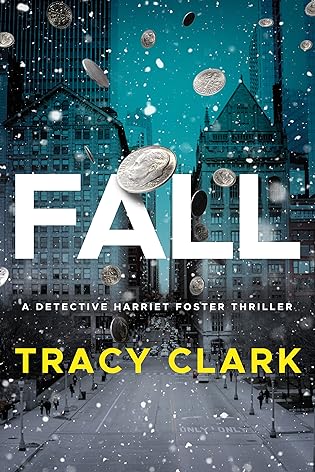 Fall (Detective Harriet Foster #2) by
Fall (Detective Harriet Foster #2) by 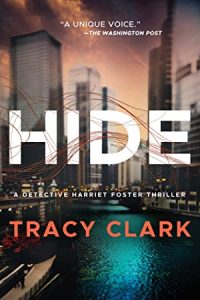 Escape Rating A++: I finished this at 3 in the morning because I simply could not put it down. I mean, I tried, but I just couldn’t let this one go until the end. An ending like black coffee, tasty but bitter, with a solid kick at the finish.
Escape Rating A++: I finished this at 3 in the morning because I simply could not put it down. I mean, I tried, but I just couldn’t let this one go until the end. An ending like black coffee, tasty but bitter, with a solid kick at the finish. Anytime that a story keeps me up until 3 in the morning, I want more than I have. Not more of this particular book, because it was the right story at the right length at the right time, but more like this or more of these characters or both. Definitely both.
Anytime that a story keeps me up until 3 in the morning, I want more than I have. Not more of this particular book, because it was the right story at the right length at the right time, but more like this or more of these characters or both. Definitely both.